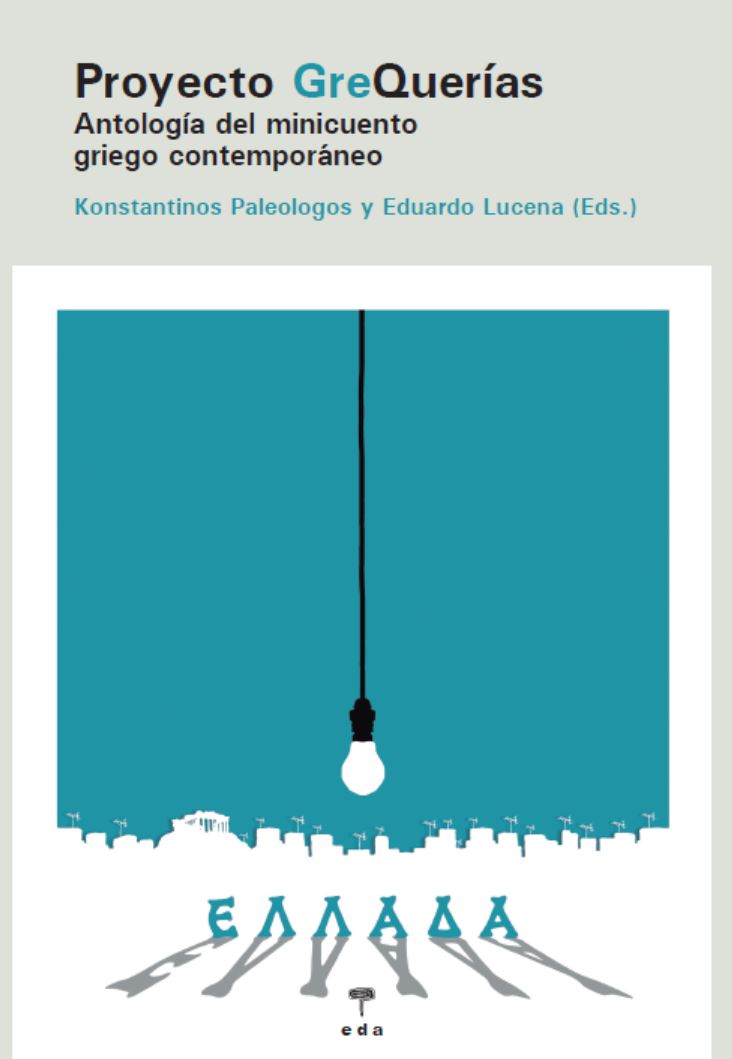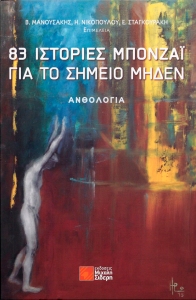Naya Koutroumani
The cruise
THE SUN began to set and she thought how time had passed looking at the same sky. The clouds were so immobile they looked glued. It was closing time for most companies and herds of suits were trampling down the riverbank like a political meeting for penguins. Blue and grey suits with colourful nooses fluttering around dry throats dying for a pint of beer.
It was nippy and their breath resembled baby dragon puffs, which thickened under their chin and fell down heavily on the frozen railings on the river.
She could see all that while floating on her back, one arm half sunk and swaying like a swan’s wing. The other caught inside her soaked woolen jacket was unable to move. She could see everything clearly, because her eyes were wide open to the light and the movement around the Thames.
But despite the images and colours and motion, the only thing she could think of was that she hadn’t found the time to do her Sunday chores. She hadn’t done the laundry nor tidied the kitchen cupboards, hadn’t fluffed the pillows, brushed the toilet bowl, hadn’t mopped the floor. But the worst thing was she hadn’t cooked for him. Hadn’t peeled the potatoes and arranged them carefully around the leg of lamb, like he likes, hadn’t seasoned the meat with salt and oregano and hadn’t squeezed any lemon on top of the surface shining with fat and oil. The oven was as cold as the railings above the water.
The river carried her softly towards the right bank. A young couple overlooking the river saw her. The girl screamed and the people in suits turned and looked. She wished she still had her makeup on.
The crowd continued to scream and point at her. It reminded her of how he’d shouted at her the night before. Barking like a dog with rabies because she hadn’t stitched the hole in his sock. He’d told her about the hole a week ago and she, being the absent minded person she is, forgot all about it.
She gave him a glass of water after hearing how dry his throat was. He threw the water at her. She didn’t think that was very polite, water being so cold and all, but she said nothing. She started tidying up the wardrobe behind her, hoping he would calm down, sit on the sofa, watch TV and fall asleep like every other time.
Not for a moment did she think he would open the drawer where she kept the knives, take the sharpest one of all, her knife, the one she never leaves behind even when they go on holidays, and slit her body the same way she does on the leg of lamb.
She’d been taking care of him for three years now with all her love. She used to kiss him on the top of his head where his hair was thinning, straighten his collar, stroke him every time he sat close to her. There on the sofa watching TV.
Look at her now, floating on the cold water like she is on that cruise he’d promised her. She hates wearing that grey woolen house jacket in front of all these strangers who point and shout improperly at her. She does the only thing she can. Pretends she doesn’t see them and looks at the clouds all glued and immobile. As the sun paints them pink and violet, she feels things are quieting down. The only sound she hears now is the splatter of the water on her body. A repetitive, self-assured sound that comforts her as the river pushes her gently towards the shore.
Source: First published on the blog Bonsai Stories (July 30, 2017).
Naya Koutroumani (Athens, 1963). Writes stories for advertising and for herself. Some of the latter have been published in literary magazines like Planodion, Diastixo and The Books Journal. She is about to take the plunge with a collection of short stories.
Translated from the Greek by the author.
Filed under: Κουτρουμάνη Νάγια,Koutroumani, Naya | Tagged: Νάγια Κουτρουμάνη,Naya Koutroumani | Τὰ σχόλια στὸ Naya Koutroumani: The cruise ἔχουν κλείσει
















